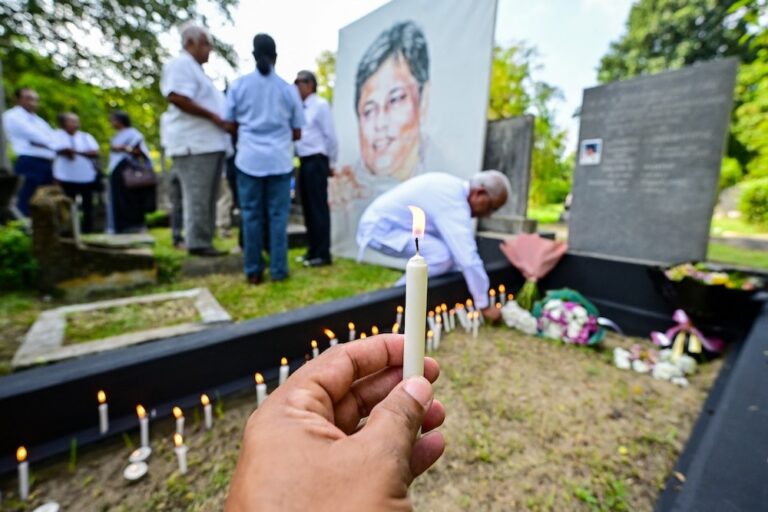The Sri Lankan government is solely responsible for ensuring the safety of prominent activist Paikiasothy Saravanamuttu, says Freedom House.
(Freedom House/IFEX) – Washington – August 21, 2009 – The Sri Lankan government is solely responsible for ensuring the safety of prominent human rights activist Paikiasothy Saravanamuttu, who received an anonymous death threat at his home yesterday. Freedom House urges that the Sri Lanka government demonstrate that it will not continue to tolerate such vigilantism by carrying out a full and impartial investigation and bringing the perpetrators to justice.
Saravanamuttu, executive director of the Centre for Policy Alternatives, is the latest in a number of high-profile people who have been threatened, assaulted or, in some cases, murdered in recent months in the country. Almost all of the victims – including activists, journalists and lawyers – have been targeted because of their criticism of government policies.
“The fact that prominent individuals such as Mr. Saravanamuttu are now being targeted shatters the myth that the human rights situation is returning to normal in Sri Lanka,” said Jennifer Windsor, Freedom House executive director. “The government must ensure that human rights activists can carry out their work in documenting the aftermath of Sri Lanka’s civil war and ongoing abuses without fear of harassment and intimidation.”
The letter Saravanamuttu received said he would be killed because he supplied information that may cause the European Union to suspend preferential trading benefits to Sri Lanka. In reality, his organization has consistently urged that the benefits be renewed and that Sri Lanka use the opportunity to bring its human rights record in line with international standards.
Sri Lankan authorities are largely failing to prosecute the perpetrators of attacks on activists, lawyers and journalists, creating a culture of impunity. In January, gunmen murdered Sunday Leader editor Lasantha Wickrematunga in Colombo just days after he predicted his death in an editorial. Months earlier, human rights lawyer J.C. Weliamuna and his family survived a grenade attack on their Colombo home. Weliamuna is the head of the Sri Lankan branch of Transparency International, an international nongovernmental organization that campaigns against government corruption. Dozens of lesser-known activists and journalists have faced the same threats in recent months.
Freedom of expression has steadily declined in Sri Lanka over the last five years, despite constitutional guarantees. Journalists and activists regularly face verbal and physical attacks, both from official sources and nationalist vigilantes. A number of journalists have fled the country and gone into exile as a result of the threats, while others heavily self-censor. Top-ranking officials, including Defense Secretary Gothabaya Rajapaksa, are known to openly equate criticism of government policies with treason. In addition, the Defense Ministry website and state-controlled media often engage in smear tactics against journalists and activists.
“This kind of behavior on the part of top-ranking officials is not befitting of the leadership of a democratically-elected government,” said Karin Karlekar, Freedom House senior researcher and managing editor of Freedom of the Press.
The ongoing culture of impunity is likely to further erode Sri Lanka’s ranking in Freedom in the World, Freedom House’s annual survey of political rights and civil liberties. Sri Lanka is ranked Partly Free in the 2009 edition of Freedom in the World and Not Free in the 2009 version of Freedom of the Press.


